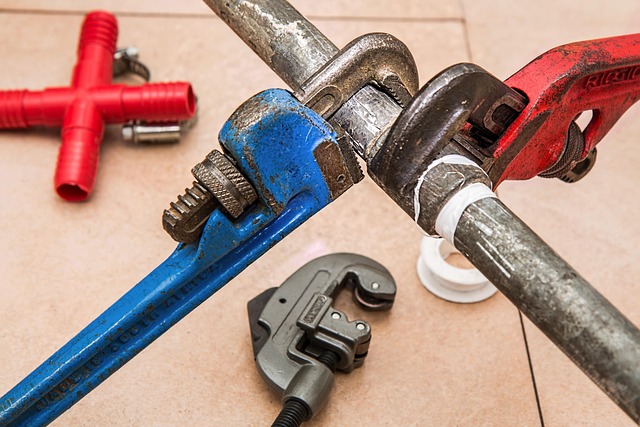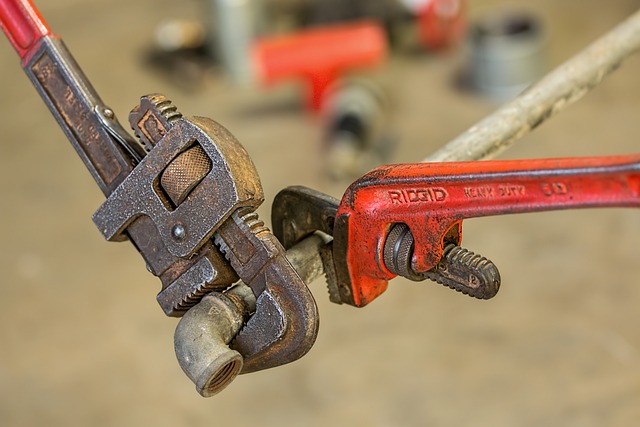Water pressure control is crucial for high-efficiency water filtration systems, preventing contamination and protecting equipment. Smart pumps, integrated with sensors and AI, offer precise regulation, real-time monitoring, and energy-efficient operation, enhancing water filtration processes. These advanced pumps activate only when needed, improve water quality, reduce environmental impact, and provide remote control through connected apps. Regular maintenance ensures their efficiency and reliability in both residential and commercial water management. Future advancements promise further optimization through enhanced water filtration, remote monitoring, and smart home integration.
Water pressure control is a critical aspect of effective water filtration systems. In this era of advanced technology, smart pumps have emerged as game-changers, offering precise and efficient regulation of water pressure. This article delves into the understanding of water pressure control, highlighting its significance in filtration systems. We explore how smart pumps, with their sophisticated features, are revolutionizing water filtration processes, ensuring optimal performance and improved water quality. Additionally, we discuss implementation, maintenance, and future prospects of this innovative technology.
- Understanding Water Pressure Control and Its Importance in Filtration Systems
- The Role of Smart Pumps in Efficient and Precise Water Pressure Regulation
- Key Features and Benefits of Advanced Water Filtration Smart Pumps
- Implementation, Maintenance, and Future Prospects of Smart Water Pump Technology
Understanding Water Pressure Control and Its Importance in Filtration Systems

Water pressure control is a critical aspect of any efficient water filtration system. Maintaining optimal pressure levels ensures that contaminants are effectively removed, while also protecting equipment from damage and prolonging its lifespan. In water filtration systems, pressure control helps regulate the flow rate, ensuring that water passes through filters at a consistent pace, maximizing their efficiency.
Improper pressure can lead to issues like backwashing (in sand or carbon filters), where dirty water is inadvertently sent back through the filter media, undermining its effectiveness. Conversely, too high pressure can cause excessive wear on pump and valve components. Smart pumps designed for water pressure control offer precise regulation, ensuring the filtration process runs smoothly and reliably, ultimately enhancing the quality of the filtered water.
The Role of Smart Pumps in Efficient and Precise Water Pressure Regulation

Smart pumps play a pivotal role in modern water pressure control systems, offering efficient and precise regulation that traditional pumping methods simply cannot match. By integrating advanced sensors and AI-driven algorithms, these innovative devices can monitor water flow, pressure, and quality in real time, ensuring optimal performance while minimizing energy consumption. This level of intelligence allows smart pumps to automatically adjust their operation based on changing demands, maintaining consistent pressure throughout the entire distribution network.
One of the key advantages of smart pumps is their ability to enhance water filtration processes. By analyzing water quality data, these pumps can activate advanced filtration mechanisms only when necessary, reducing the need for constant, extensive treatment. This not only conserves energy and resources but also contributes to a more sustainable and cost-effective water management system. In both residential and commercial settings, smart pumps contribute to improved water quality, reduced environmental impact, and significant long-term savings.
Key Features and Benefits of Advanced Water Filtration Smart Pumps

Advanced water filtration smart pumps offer a multitude of key features and benefits that set them apart in the market. These innovative devices are equipped with sophisticated filtration systems, ensuring water quality by removing impurities, sediment, and even harmful contaminants as small as 0.1 microns. This level of purification is particularly beneficial for homes with old plumbing or well water sources, where potential pollutants might be present.
Moreover, smart pumps provide real-time monitoring and control capabilities through connected apps. Users can remotely adjust water pressure, set schedules, and receive alerts for filter changes or maintenance tasks. This technology not only simplifies daily management but also prevents sudden breakdowns or inefficient operations. With energy-efficient designs and precise flow controls, these smart pumps contribute to reduced water wastage and lower energy consumption, making them environmentally friendly choices for modern households.
Implementation, Maintenance, and Future Prospects of Smart Water Pump Technology

The implementation of smart pump technology for water pressure control offers significant advantages in terms of efficiency and sustainability, especially when integrated with advanced water filtration systems. These intelligent pumps can adapt to changing water demands, ensuring optimal pressure levels while minimizing energy consumption. By leveraging real-time data and automated controls, they help reduce water waste and improve overall system performance.
Regular maintenance plays a crucial role in keeping smart water pump technology efficient and reliable. Regular checks, including monitoring for leaks, inspecting valves, and replacing filters, ensure the system operates at peak capacity. Moreover, as technology advances, future prospects look promising with potential upgrades focusing on enhanced water filtration capabilities, improved connectivity for remote monitoring, and integration with smart home systems, further streamlining water management processes.
